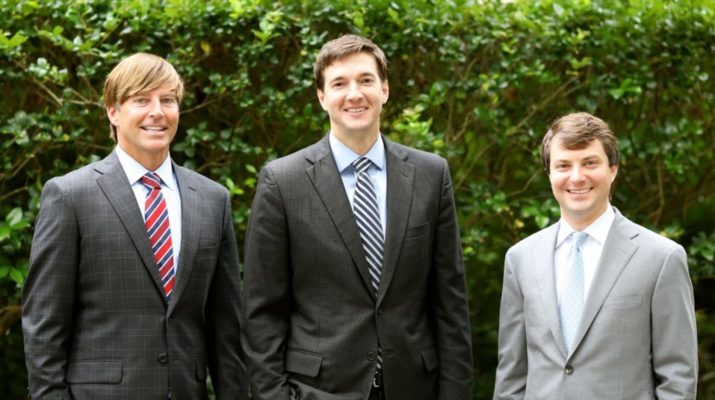- Anderson Oaks
- Benton House of West Ashley
- Bloom at Belfair Senior Living
- Brookdale Anderson
- Brookdale Assisted Living Facilities
- Brookdale Easley
- Brookdale Greenville (formerly Emeritus at Greenville)
- Carolina Gardens Assisted Living Facilities
- Charleston Bishop Gadsden Episcopal Health Care Center
- Charleston Heartland of West Ashley Rehab and Nursing Center Neglect and Abuse
- Charleston NHC HealthCare Neglect and Abuse Attorney
- Faith Healthcare Center Abuse and Neglect Attorneys
- Franke Health Care Center Abuse and Neglect Attorneys
- Heartland Health and Rehabilitation Care Center In Hanahan
- Heartland Health Care Center-Union Neglect and Abuse Attorney
- Heartland Health Care Center—Greenville West Neglect and Abuse Lawyers
- Heartland of Columbia Rehabilitation and Nursing Center Neglect and Abuse Lawyers
- Lakes at Litchfield Assisted Living Abuse and Neglect Attorneys
- Laurel Baye Healthcare of Blackville Abuse and Neglect Attorneys
- Laurel Baye Healthcare of Williston Assisted Living Facility Neglect and Abuse Attorney
- Lexington Medical Center Extended Care Abuse and Neglect Attorneys
- Life Care Center of Charleston Neglect and Abuse Lawyers
- Life Care Center of Columbia Neglect and Abuse Lawyers
- Life Care Center of Hilton Head
- Methodist Oaks Abuse and Neglect Attorneys
- Morningside Assisted Living Facilities Attorneys
- Myrtle Beach Manor Nursing Home Abuse and Neglect Attorneys
- Myrtle Beach Manor Retirement Community Abuse and Neglect Attorneys
- NHC Healthcare – Garden City: Abuse and Neglect Attorneys
- NHC Healthcare – Greenville Abuse and Neglect Attorneys
- NHC Healthcare – Greenwood Abuse and Neglect Attorneys
- NHC Healthcare – Laurens Abuse and Neglect Attorneys
- NHC Healthcare – Lexington Abuse and Neglect Attorneys
- NHC Healthcare – North Augusta Abuse and Neglect Attorneys
- NHC Healthcare Bluffton Neglect and Abuse Lawyers
- NHC Healthcare Clinton Neglect and Abuse Lawyers
- NHC HealthCare in Anderson Abuse and Neglect Lawyer
- NHC HealthCare Parklane Abuse and Neglect Attorneys
- NHC HealthCare Sumter Abuse and Neglect Attorneys
- NHC Healthcare, Mauldin Abuse and Neglect Attorneys
- Oakhaven Nursing Center Abuse and Neglect Attorneys
- Opus Post Acute Rehabilitation
- Presbyterian Communities of South Carolina – Columbia Abuse and Neglect Attorneys
- Rice Estate Rehabilitation and Nursing Abuse and Neglect Attorneys
- Ridgeland Nursing Center Abuse and Neglect Attorneys
- Sandpiper Rehab & Nursing Abuse and Neglect Attorneys
- Savannah Grace at the Palms of Mount Pleasant
- Savannah Hall Assisted Living Facilities Abuse and Neglect Attorneys
- Nursing and Rehabilitation Center Abuse and Neglect
- Generations Assisted Living Facilities in South Carolina
- Summit Place Assisted Living Facilities in South Carolina
- Sweetgrass Court Senior Living Community Lawyers
- Sweetgrass Village Assisted Living Community Lawyers
- Taking on Greenville East Heartland Health Care Center
- Palmettos of Charleston Nursing Home Injury Lawyer
- The Pines at Bluffton (Formerly Bloom at Bluffton)
- Wellmore Assisted Living Facilities
- White Oak Manor
- Wildewood Downs Abuse and Neglect Attorneys
- Windsor House Abuse and Neglect Attorneys
- Windsor Manor
You would hope that those managing or working in nursing homes would treat residents with the utmost care and respect. Unfortunately, in far too many instances, our seniors face horrible treatment in nursing homes.
If this happens to a loved one, a South Carolina nursing home abuse lawyer with Hughey Law Firm is ready to help. Our attorneys have years of experience fighting for people who cannot fight for themselves.
We will do everything possible to help you achieve justice and obtain maximum compensation from those responsible for the mistreatment of you or your loved one.
We represent nursing home abuse victims throughout South Carolina, and we can assess whether you have a claim against a facility. Our team has taken on many of the major long-term care facilities and chains across the state, and we are ready to fight for you.
Call our Mt. Pleasant office at (843) 881-8644 or Charleston office at (843) 203-6689 for your free case evaluation with our dedicated team today.
Schedule A Free Consultation Today!
South Carolina Nursing Home Abuse Guide
- Why You Should Turn to the Hughey Law Firm’s South Carolina Nursing Home Abuse Lawyers
- Types of Nursing Home Abuse
- What to Do if You Suspect Nursing Home Abuse
- Legal and Civil Penalties for Nursing Home Abuse
- How Our South Carolina Nursing Home Abuse Lawyers Investigate a Case
- Please Don’t Hesitate to Get in Touch
Why You Should Turn to the Hughey Law Firm’s South Carolina Nursing Home Abuse Lawyers
When you choose the Hughey Law Firm, you’ll work with a South Carolina nursing home abuse lawyer who has helped people in situations similar to yours for years. We’ve seen far too many examples of people who have suffered – and, in some tragic instances, died – due to nursing home mistreatment.

Our attorneys have significant experience in this area of the law, which is a major reason why many other law firms refer clients to us for nursing home abuse cases. We have attorneys who have presented cases in front of the South Carolina Supreme Court and are qualified to argue in front of the United States Court of Appeals for the Fourth Circuit.
Our lawyers understand state and federal laws concerning nursing home regulations and elder abuse, and we’re ready to use that knowledge and our substantial skills to your advantage.
Never wait to contact our firm to set up your no-cost consultation. We are ready to help.
Types of Nursing Home Abuse
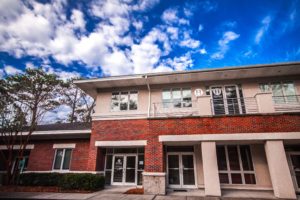
About one in ten seniors have suffered abuse in community settings, though victims under-report nursing home abuse for many reasons.
Some of the more common forms of nursing home mistreatment – and ways to spot abuse – include the following:
Psychological or Emotional Abuse
Definition and Examples: Nursing home staff members often abuse residents verbally, such as by yelling at or threatening a resident or humiliating them. Other abuse is silent, such as keeping a resident separated from others.
Signs and Symptoms: The signs of emotional abuse include noticeable changes in behavior, such as increased anxiety, depression, withdrawal from social interactions, and unexpected mood changes. Residents may also show signs of fearfulness, agitation, or unusual changes in their sleeping or eating habits.
Sexual Abuse
Definition and Examples: Residents often experience non-consensual sexual contact, which can come in many forms. For example, a staff member may coerce a resident into disrobing by threatening physical harm. Other forms include committing a sexual assault or touching a resident in an inappropriate, unwanted manner.
Signs and Symptoms: Symptoms of sexual abuse may include bruising around the genitals or breasts, sexually transmitted infections (STIs), trouble sitting or walking, and others. Victims may become withdrawn, exhibit sudden behavioral changes, or act fearful for no apparent reason.
Neglect
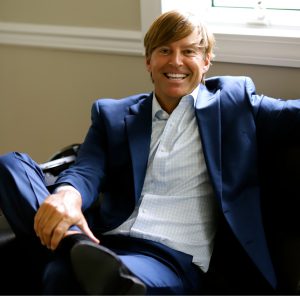
Definition and Examples: Neglect involves failing to protect residents from harm or giving them the care they need. Some unintentional neglect results from overworked or under-trained staff, but intentional neglect can also occur. Staff members often fail to meet a resident’s basic needs by not providing medical care, hygiene, and, in some instances, even food, water, or clothing.
Signs and Symptoms: Indications of neglect include unsanitary or dangerous living areas, significant weight loss or other signs of malnutrition, bedsores, and more.
Physical Abuse
Definition and Examples: As horrible as the previous forms of abuse are, physical abuse is arguably worse. Staff members will often kick, hit, slap, or push residents, causing severe pain and bodily damage. They may also restrain a resident dangerously.
Signs and Symptoms: The most obvious signs of physical abuse are injuries you can see, such as burns, bruises, and broken limbs. Subtle signs can easily go undetected, such as a resident not wanting to be in the same room as a specific staff member because they fear the member will hurt them again.
Financial Abuse
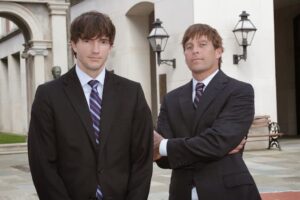
Definition and Examples: Financial abuse entails the unauthorized or improper use of a resident’s financial resources. This form of abuse can include stealing money or personal property, forging signatures, coercing the resident into financial transactions, or misusing power of attorney.
Signs: If your loved one is missing funds from their account, you notice odd changes on their financial documents, or they can’t pay bills even though they should have enough money, they’re likely the victim of financial abuse. Residents may also express confusion about financial matters or anxiety regarding their finances.
What to Do if You Suspect Nursing Home Abuse
If you suspect nursing home abuse, the first and most critical step is to work to ensure the resident’s safety immediately. Call 911 or your local emergency services if the resident faces immediate danger. Removing the resident from the abusive environment, if possible, can prevent further harm.
Other steps include:
Document Observations and Evidence
![]()
Carefully document any signs of abuse you observe. This documentation includes taking notes on physical injuries such as bruises, cuts, or bedsores, as well as behavioral changes like fearfulness, withdrawal, or depression.
Keep a detailed record of dates, times, and specific incidents. Photographs of injuries and unsafe living conditions can serve as crucial evidence. In addition, keep copies of any medical reports, financial statements, or communications that support your suspicions.
Report Your Suspicions to Authorities
Most facilities have procedures for handling abuse allegations, and it’s essential to inform them to initiate an internal investigation. You should also report the abuse to external authorities.
Contact South Carolina’s Adult Protective Services (APS) or the local Long-Term Care Ombudsman, who advocates for nursing home residents. These agencies can investigate the abuse independently and take necessary actions to protect the resident.
Find Out Your Legal Options
![]()
Consulting our South Carolina nursing home abuse lawyers is another vital step. We can guide you through your legal options, including filing a civil lawsuit for damages against the nursing home. We can also gather all necessary documentation and evidence to prove your case.
Our attorneys can also help with protective measures. Taking these steps promptly can significantly impact your loved one’s well-being and protection.
Legal and Civil Penalties for Nursing Home Abuse
According to South Carolina law, willfully and knowingly abusing a vulnerable adult is a felony, as is exploiting or neglecting that adult. Offenders face at least five years in prison and up to 30 years in prison if the abuse results in the victim’s death. However, civil claims are necessary to seek compensation and full justice for victims of abuse.
Civil Lawsuits and Potential Compensation
Victims of nursing home abuse and their families can pursue civil lawsuits against the abusers and the nursing home facility. These lawsuits can provide compensation for the harm suffered due to abuse or neglect.
Compensation can cover medical expenses, pain and suffering, emotional distress, and costs related to relocating to a safer environment. In cases of financial abuse, victims can seek recovery of stolen assets and funds.
If the abuse results in the wrongful death of a resident, their family can file a wrongful death lawsuit, seeking compensation for their loss and holding the responsible parties accountable. Civil lawsuits not only provide financial relief but also serve as a deterrent to prevent future abuse in nursing homes.
How Our South Carolina Nursing Home Abuse Lawyers Investigate a Case

You must speak with our South Carolina nursing home abuse lawyers as soon as possible if you have reason to suspect a care facility has mistreated your loved one. The earlier you hire an attorney, the earlier we can investigate.
Investigating nursing home abuse is a meticulous and thorough process that requires significant experience. We employ several strategies to uncover the truth and build a compelling case to ensure justice for victims.
The following is a look at how our South Carolina nursing home abuse attorneys typically conduct our investigations.
The Initial Consultation and Case Evaluation
The process begins with an initial consultation, during which we meet with the victim and their family members to gather preliminary information.
During this consultation, we ask detailed questions about the signs of abuse observed, the behavior of nursing home staff, and any specific incidents that raise concerns. This initial evaluation helps us determine the viability of the case and the best course of action.
Collecting Evidence
A crucial part of the investigation involves collecting and preserving evidence. This can include:

- Medical records: We will obtain medical records to document injuries, illnesses, and treatments. These records can show patterns of neglect or abuse and provide a timeline of incidents.
- Financial documents: In financial abuse cases, your attorney will scrutinize bank statements, credit reports, and other financial documents to identify unauthorized transactions or missing funds.
- Photographic evidence: Photos of injuries, living conditions, and any physical damage within the nursing home can be powerful evidence.
- Witness statements: Your attorney can interview witnesses, including other residents, family members, and nursing home staff, to gather testimonies that support the claims of abuse.
- Consulting experts: Lawyers often work with various experts to strengthen the case. Medical experts, for instance, can provide professional opinions on the nature and cause of injuries, helping to establish whether they resulted from abuse or neglect. Forensic accountants may analyze financial records for signs of exploitation. Elder care specialists can testify about standard care practices and identify deviations that constitute neglect or abuse.
Legal Documentation and Reporting
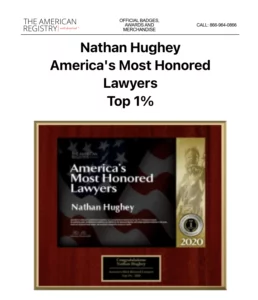
Our attorneys handle all necessary legal documentation and reporting. We can file complaints with relevant regulatory bodies. These agencies can also investigate and take action against the nursing home.
You can let your South Carolina nursing home abuse lawyer handle all the legal matters so you can focus on your loved one’s well-being.
Building a Legal Case
Your attorney will also meticulously build a legal case by organizing all collected evidence and formulating a legal strategy. We will draft legal documents, such as complaints and motions, and prepare for insurance claims or potential court proceedings.
Your nursing home abuse lawyer will also develop arguments to prove liability and demonstrate the extent of harm the victim has suffered.
Representation and Advocacy
Throughout the investigation and subsequent legal proceedings, your attorney will always represent the victim’s interests, advocate for their rights, and seek justice.
We may negotiate settlements with the nursing home or pursue the case in court. Our goal will always be to secure compensation for the victim’s injuries, pain, suffering, and financial losses and to hold the abusers accountable.
As you can see, investigating nursing home abuse is a complex process that requires a lawyer to gather extensive evidence, consult experts, navigate regulatory reporting, and build a solid legal case.
By diligently pursuing every avenue, your Hughey Law Firm South Carolina nursing home abuse lawyer will work to ensure your loved one receives the justice and protection they deserve.
Please Don’t Hesitate to Get in Touch
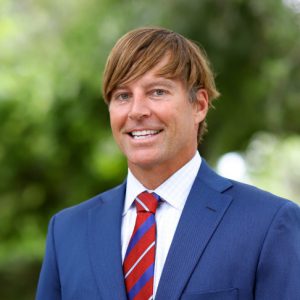
If you suspect that a loved one is suffering mistreatment in a nursing facility, it’s time to act. Contact our South Carolina personal injury lawyers with the Hughey Law firm immediately to protect their rights and ensure their safety.
Our experienced attorneys are here to help you seek justice and provide the support your family needs. Reach out today for a free consultation and take the first step towards securing a safer future for your loved one. You can use our online contact form or call (843) 881-8644 in Mt. Pleasant or (843) 203-6689 in Charleston.
Schedule A Free Consultation Today!
Client Testimonial
“Thank you Hughey Law Firm! It was a pleasure to work with you on my case! From the beginning, every contact I had with your firm was professional, kind, helpful, and painless! I always felt kept in the loop, and important to you as a client. If you are looking for a personal injury attorney with integrity, I would highly recommend Hughey Law Firm!”
Rating: 5/5 ⭐⭐⭐⭐⭐
Karen C.
Read more reviews on Google!
Hughey Law Firm LLC, South Carolina Mt. Pleasant Office:
1311 Chuck Dawley Blvd. | Suite 201
Mt. Pleasant, SC 29464
Phone: (843) 881-8644
Hughey Law Firm LLC, South Carolina Charleston Office:
171 Church St | Suite 330
Charleston, SC 29401
Phone: (843) 203-6689


